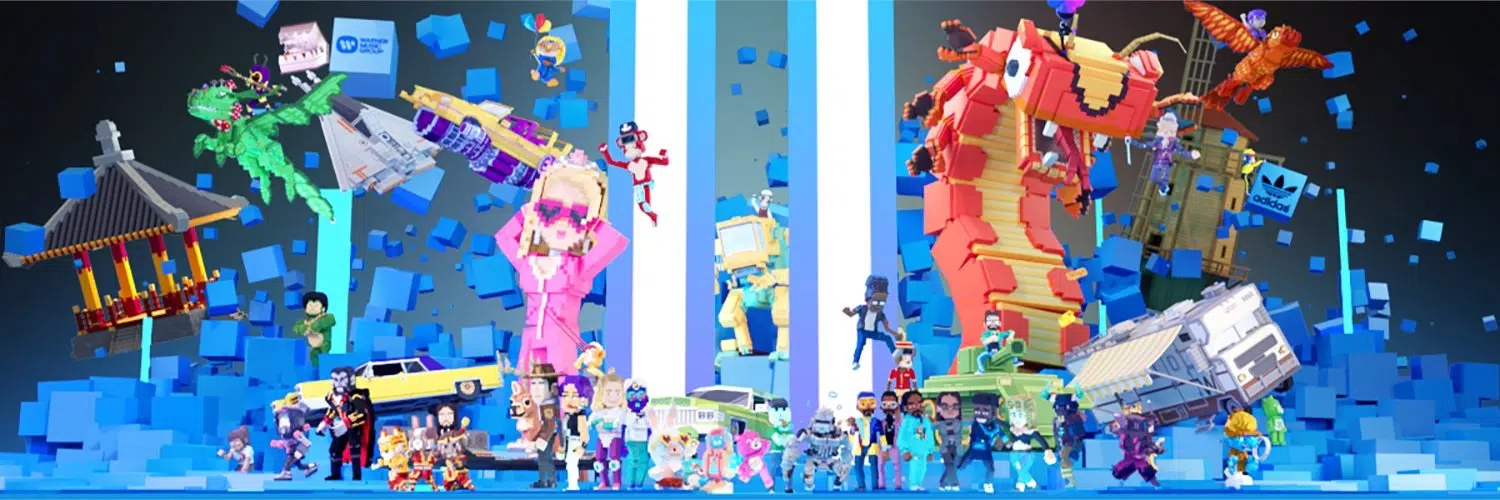Projects built on the Ethereum blockchain, such as Sandbox and Decentraland, have lost ground on key metrics. According to WeMeta, Decentraland’s average land price was the highest in February 2022: $37,238. And on August 1, their value had already fallen 37 times: to $5,163. Similarly, everything adds up with the average sale price of virtual real estate in Sandbox: from $35,500 in January to about $2,800 in August. And among the other most significant real estate projects in the Ethereum-based meta-universe, the price has fallen by 85% this month.
Land prices in the Metaverse are collapsing.
Even if the land is virtual, the pain is real. pic.twitter.com/ifsk8JWorU
— Alf (@MacroAlf) August 6, 2022
“The metaverse is almost entirely hype and baloney right now. If you’re worried about your company needs to jump in the right this very minute to make your metaverse play, you can stop worrying,” said Philip Rosedale at the Future Compute conference, whose company Linden Lab created virtual civilization Second LifeSecond Life is an online game with the effect of presence. The game was developed in 2003. In it, users create avatars, build houses and other spaces, interact with other players, explore different events, and so on.
The brand new newsletter with insights, market analysis and daily opportunities.
Let’s grow together!
And in general, against the backdrop of the collapse of cryptocurrencies, interest in the virtual land has fallen noticeably. Although, according to a McKinsey Corporation report, venture capital funds and private investors invested more than $120 billion in Metaverse between January and May 2022, more than double the $57 billion invested in 2021. The company’s analysts predict virtual space could become a $5 trillion sector by 2030.
How to become a virtual developer
Real estate in the metaverse is bought in the same way as an NFTnon-fungible token — a unique or collectible virtual object that can be purchased and placed in the virtual world, such as a digital work of art. After depositing a specific cryptocurrency, you receive a unique piece of blockchain code as proof of virtual item ownership. And if you’re lucky, you might even snatch a piece of land next to Snoop Dogg or Paris Hilton.
Is virtual real estate a good investment?
After the peak of the popularity of real estate in the metaverse, where prices rose by as much as 300% in 4 years, there was a decline. And now, many may see this as a good time to invest their money in it. However, there are many risks.
Cons
- Yes, the celebs are buying virtual land themselves or investing in it. But they won’t lose their roof over their heads if they go broke. And in the end, it’s hard to say what’s in store for the metaverses in the long run.
- Laws and constitutions do not protect the virtual real estate in the same way as traditional real estate. This means that virtual property can be deleted and access permanently blocked for any reason and without compensation.
- There are significant differences between traditional real estate and virtual real estate. And with them came unique risks. Physical land is directly perceived by our senses, while virtual is only available on the platform. Therefore, if the platform operator restricts an owner’s access to the platform or removes it entirely, owners of virtual real estate on the platform will be left with no property rights and virtually no legal recourse.
- Under Decentraland’s terms of use, the platform operator has no obligation to ensure its longevity and “may cease to operate . . . in the future, at its exclusive discretion, with no liability whatsoever in connection thereto.” The Sandbox may, “in its sole discretion” and at any time, block an owner’s access to the platform and terminate its rights to create and download content.
- Some platforms, including Decentraland, are organized as DAOs, community-driven organizations without a centralized authority. Decisions are made by voting by DAO members (commonly referred to as “token holders”) based on governance protocols, all executed according to the rules of smart contracts. DAOs decentralize influence by taking it partially away from the platform operator. This reduces the risk of limiting owners’ rights. But it can also increase the cost of owning virtual real estate and make the whole process more false and less efficient.
- Smart contracts
protocols that allow transactions to be automatically conducted and controlled by mathematical algorithms are used to perform virtual real estate transactions in the metaverse. They make transactions safer, but they also reduce flexibility. For example, once a purchase transaction is added to the blockchain, it becomes final, with no ability to change or renegotiate terms without DAO approval.
- Most people don’t know much about the metaverse. That’s why scammers of all kinds create various phishing links (imitate links to the most popular platforms). As soon as the user clicks the link, the attacker gets access to the victim’s virtual wallet and can initiate a transaction using a smart contract. And as we know, such a transfer is almost impossible to undo, and the stolen cryptocurrency is nearly impossible to recover.
Pros
- Virtual arenas can host artists and hangouts. Stars have participated in such events on several occasions. The auction house Sotheby’s has even built a publicly accessible replica of its London headquarters in Decentraland. At their sites can hold virtual meetings and conferences with employees and partners of companies (and to contain such an office is much cheaper). For example, Bill Gates predicts that in the next 2-3 years, the metaverse will conduct most office meetings using personal avatars. And this is very relevant for remote workers or in a quarantined environment.
- In the future, the meta-offices may become a workplace. Companies will actively hire receptionists, casino managers, and other positions for people (and their avatars).
- Those who invest in virtual real estate can also earn by renting out properties and making a profit as the value of digital land increases — for example, for advertising or events.
- In whatever case, it is essential to understand that succeeding with investments in virtual real estate will be possible only if the future popularity of such platforms is high. And no one can guarantee this.
- Diversification of the investment portfolio (capital is placed in different “baskets” with varying risk levels and specific proportions). It helps reduce the risks associated with investing.
But before you buy virtual real estate, you should always consider risks such as the platform operator’s complete control over virtual real estate rights, the potential complication of virtual real estate rights in the future, and the immutable nature of smart contracts.
Well, since the metavalleys are still developing, investors have the opportunity to buy virtual land at very affordable prices.
And if you don’t know where to look first, the most obvious choices would be Roblox, Fortnite, and Minecraft, which experts usually name among the most promising metaverse platforms.







